The inaugural panel for Q3 began with the observation that, “Political Science had given up on the future.” In his opening words, Director James Der Derian remarked that what has hindered our ability to prepare for the shocks to the international system has been the abandonment of the essential imperative to speculate. When the premise of a peace and security symposium is speculation, identifying vantage points becomes the primary challenge. Assembling thinkers from a spectrum of methods, disciplines, and cultures, the opening panel traced three of these points.

Photo: Gilbert Bel-Bachir.
Michael Biercuk, Associate Professor of Physics and Director of the Quantum Control Laboratory at the University of Sydney, opened the panel with his presentation titled ‘A New Quantum Revolution‘. Dr. Biercuk discussed how multiple quantum phenomena are being harnessed as resources in powering new quantum technologies, beyond the quantum computer alone. For example, quantum superposition and entanglement research is improving the issue of industrial nitrogen fixation; improvements in semiconductor fabrication have also led to improvements in national power grid resilience and efficiency. These developments are at the centre of a collaborative relationship between the public and private sectors, covering issues from defence to finance. At the centre of Dr. Biercuk’s presentation was the question, what will happen when the application of advanced quantum technologies becomes exploited? What are the consequences of winning – or losing – a global technological race?

Photo: Gilbert Bel-Bachir.
Shohini Ghose, Associate Professor of Physics at Wilfred Laurier University in Canada, followed with a social perspective examining the individuals tasked with developing and operating these quantum technologies. Titled ‘Quantum Diversity‘, Dr. Ghose traced the relationship between the invisible world of quantum theory and the visible world of quantum scientists. To develop this, Dr. Ghose remarked on classical versus quantum behaviours, how entanglement at the quantum level and chaos at the classical level arise from the coupling between the atomic spin and its center-of- mass motion. To explain this, Dr. Ghose drew on recent research into quantum tunnelling – the quantum mechanical phenomenon where a particle tunnels through a barrier that it classically could not surmount. These behaviours translate into a set of guidelines: the invisible can be made visible, barriers can be crossed, small changes can have a big impact, and nonlocal connections are powerful. Tying the discussion back to the social perspective, Dr. Ghose outlined that these quantum-classical behaviours could be translated into strategies and applied to questions of diversity.

Photo: Gilbert Bel-Bachir.
Bentley B. Allan, Assistant Professor of Political Science at John Hopkins University, continued with a historical perspective of the philosophical and political discourses that frame the scientific processes of development. Titled ‘Quantum Cosmologies and the Future of the International Order‘, Dr. Allan drew on the international history of scientific ideas to demonstrate how they have shaped international orders by reconfiguring foundational concepts that underpin political discourses. For example, there was Copernicus’ mathematics and heliocentric model of the universe, then Descartes’ philosophy on the world as matter possessing a few fundamental properties and interacting according to a few universal laws. Anticipating the potential effects of a 21st century quantum revolution on political discourses, the place of the individual within the universe would be challenged with direct implications for the configuration of states and their sources of power. These effects could occur through three channels: the metaphorical, the institutional, and the technological. Analysing the arrangement of interests, Dr. Allan concluded that a few questions needed to be answered: how could quantum technologies introduce practices that would reconstitute state power, and who are the central actors at the centre of quantum research?
Raising questions of speculation and simulation, this panel offered a primer. As a useful method of inquiry, simulations become acutely useful when speculating about the future. Reiterating Richard Feynman, the famous American physicist, “Nature isn’t classical, dammit, and if you want to make a simulation of nature, you’d better make it quantum mechanical, and by golly it’s a wonderful problem because it doesn’t look so easy”. As a driver of change in the global security matrix, quantum technologies hold a uniquely volatile capacity to affect the future of the international system. This panel revealed that in the broader debate of peace and security in a quantum age, vantage points are not necessarily fixed; instead, they form the strands of a much larger fabric of thought.
Eleanor Claire Williams is a recent Master of International Relations graduate of the University of Sydney, and is currently working in public policy for the NSW Government. Eleanor is also a Project Q research assistant and contributor to the blog.

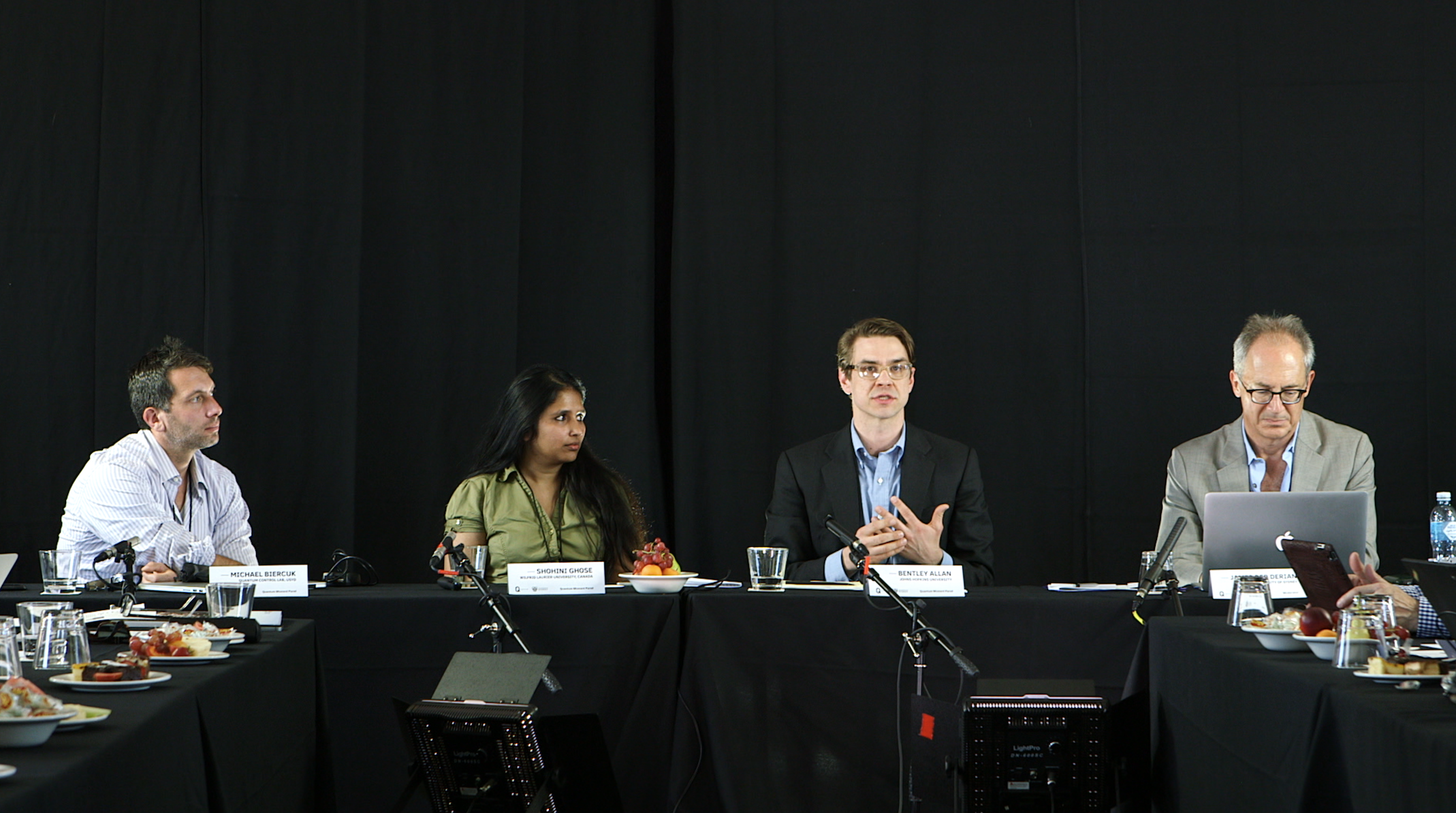
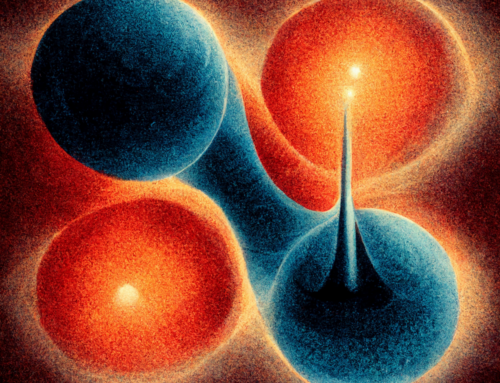
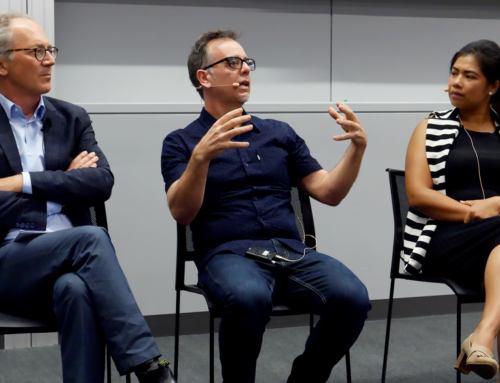
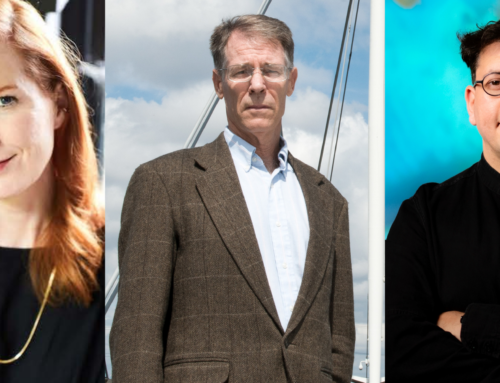

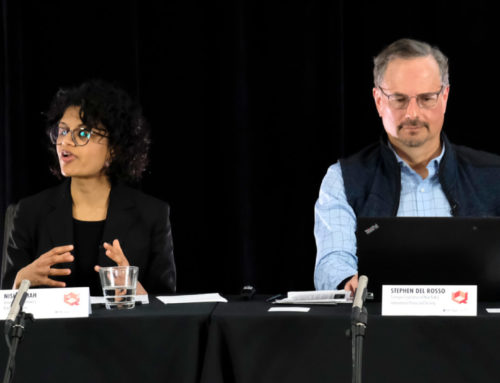
[…] on from the Quantum Moment and Quantum Matter panels on the previous day, Q participants gathered to contemplate the […]
[…] can read about the Quantum Moment panel, where Associate Professor Biercuk presented a paper on The new quantum revolution, and listen to […]